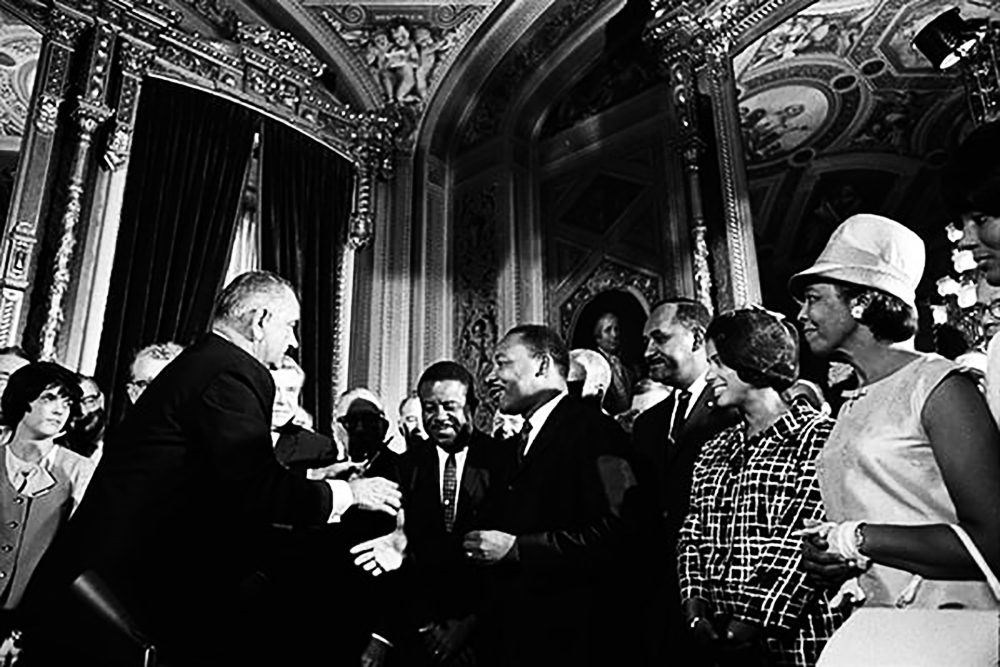President Johnson, Martin Luther King, Jr., and Rosa Parks at the signing of the Voting Rights Act on August 6, 1965.
Democracy is a relatively new concept in the last of the 48 continental states, blazing ahead at times like an express stagecoach even as it left some people behind.
By Ray Stern || Arizona Republic
Democracy is a relatively new concept in the last of the 48 continental states, blazing ahead at times like an express stagecoach even as it left some people behind.
American voting rights in Arizona began in 1865, two years after Congress granted territorial status. The 1st Arizona Legislature announced that regular elections for legislative representatives and territorial delegates to Congress would begin that year.
The Legislature bestowed voting rights on “every white male citizen of the United States and every white male citizen of Mexico” now within the territory’s boundaries. Citizens could vote in several elections, but not for president or the governor, who was chosen federally.
Many Mexicans who chose to stay north of the new border faced discrimination and exclusion from most public offices. But men occasionally broke barriers, like Nabor Pacheco, a Mexican American elected as the first Latino sheriff of Pima County in 1904.
Black people were legally allowed to vote after the passage of the 15th Amendment, but not Native Americans or people of Asian descent. Nor could women of any race vote in Arizona.
Literacy tests targeted people of color
Democrats introduced a literacy test in the early 20th century to blunt the vote of Spanish-speaking Mexican Americans who tended to vote Republican. Congress deleted the literacy law in Arizona when it granted statehood in 1912, but lawmakers swiftly reinstated it.
At the same time, Arizona’s founding fathers created a powerful tool of democracy, the right of citizens to create law through ballot initiatives. Male voters passed women’s suffrage as the first initiative.
Arizona’s literacy law, which required voters to read a section of the U.S. Constitution, disproportionately affected Arizonans of color for decades. Federal intervention gave Indigenous people the right to vote in Arizona in 1948, and Asian Americans followed in 1952. But the literacy test meant that in practice, as many as 90% of Native Americans in Arizona were unable to vote until it was revoked permanently.












